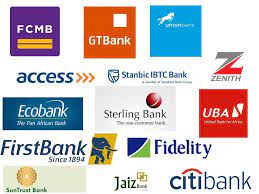Nigerian banks’ dominance of their home turf is virtually unparalleled.
Largely protected by regulators from foreign competition, Nigerian lenders control 94% of their domestic market, by assets, the world’s largest share of local ownership after Israel, according to a report published before Covid-19 hit in 2020 by Chris Ogbechie and Lilac Nachum, scholars at Lagos Business School.
But the threat is now homegrown. Nigerian banks are only now starting to counter the emerging financial-technology firms riding the online wave spurred by the pandemic. As they set out their mobile-money ambitions, they’re deploying their political muscle with regulators to bolster the moat around their franchises.
“Some might claim there is pushback from traditional banks and their regulatory ally to restrict financial innovation by fintechs,” says Abubakar Idris, analyst at Stears Business, a Lagos-based consultancy for financial and technology companies. “If the largest telcos get a banking license, they could undercut the banks.”
The simmering conflict broke into the open this month when lenders kicked MTN Group, Africa’s largest mobile-phone company, off of their shared platform, protesting a cut by the telecom provider on commissions charged on banking channels by almost half to 2.5%. Regulators intervened to reconnect MTN customers, while reinstating the 4.5% commission for the purchase of airtime bought via the banks.
The sparring means the 60 million people in Africa’s largest economy who lack access to any banking services risk missing out on all the benefits of the financial-technology boom that has put much of Africa at the cutting edge of the revolution in mobile money.
Anticipating the underserved entering the market, foreign investors have jumped in. Flutterwave, based in Lagos and San Francisco, raised $170 million this year. That made it Nigeria’s second fintech startup with a valuation above $1 billion, after Interswitch. Jumia Technologies AD, a Berlin-based e-commerce platform that started in Lagos, has almost tripled since it sold shares in New York in 2019, giving it a market value of $3.4 billion.
The investment in Flutterwave by U.S. hedge fund Tiger Global Management LLC and New York private-equity firm Avenir is more than double the 26 billion naira ($64 million) spending on information technology by Nigeria’s two biggest banks in 2020. The two lenders spent 13.7 billion naira in the year earlier.
That helps explain why lenders including Guaranty Trust Bank Plc and Access Bank Plc, the country’s two biggest, could use some help from regulators. They’re planning to start payments units this year, more than a decade after counterparts in Kenya and South Africa.











